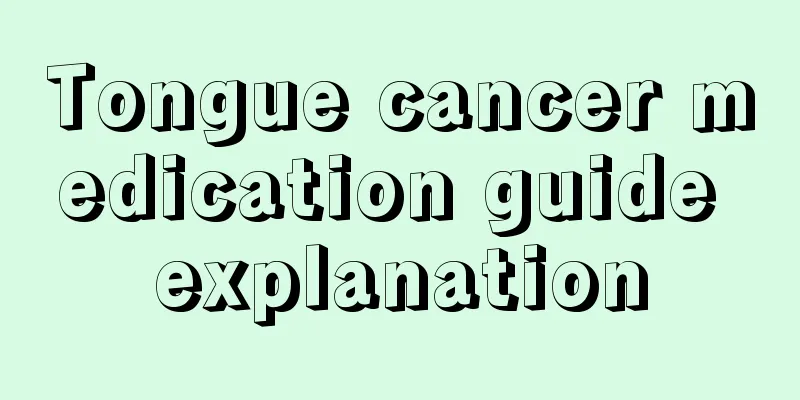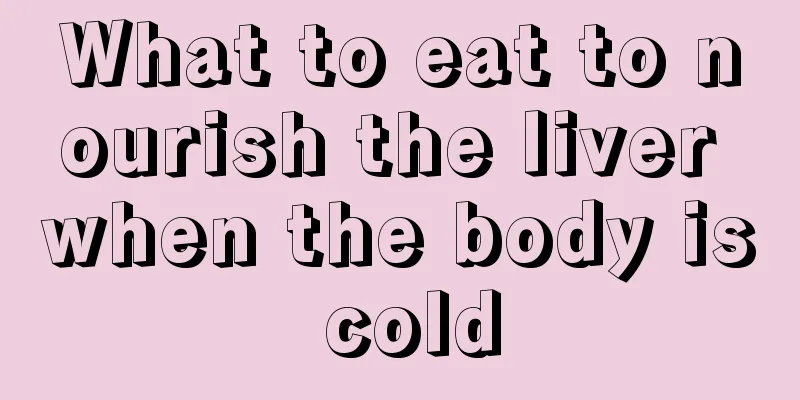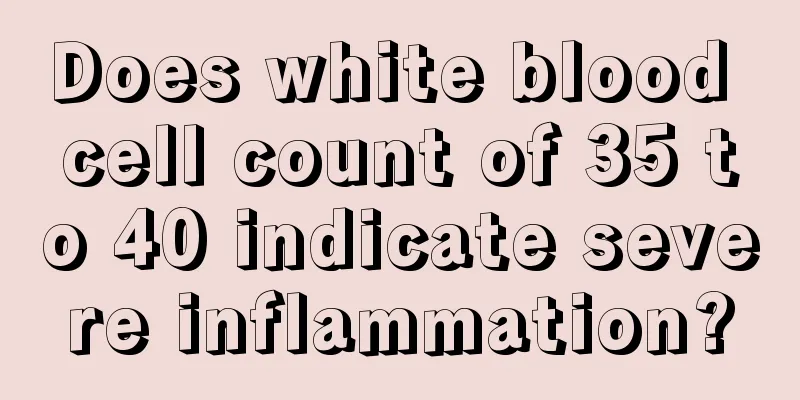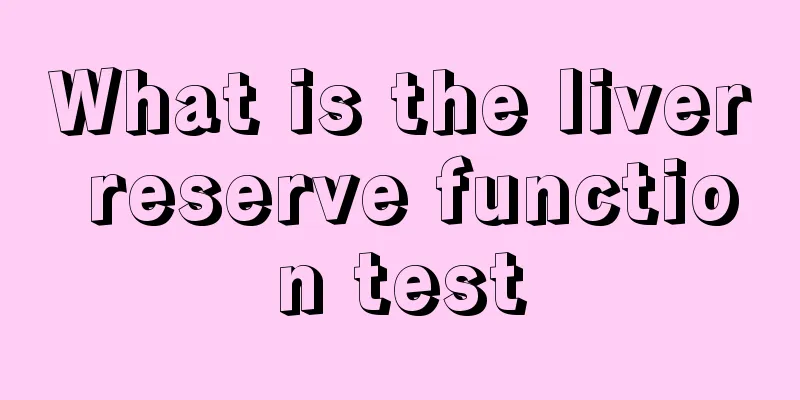Tongue cancer medication guide explanation

|
As we all know, the occurrence of diseases is related to many factors, such as: increasingly serious pollution problems, food safety issues, autoimmune problems, etc. It seems that humans coexist with diseases. Tongue cancer is a malignant tumor, which is a common and high-incidence disease among ENT tumors. Today, let's learn about the medication guidelines for tongue cancer. Since tongue cancer belongs to the category of malignant tumors, clinical treatment of tongue cancer is mainly surgical treatment, and taking medications is not very effective. Generally, primary source resection and neck lymph node dissection should be performed, and radiotherapy or chemotherapy and biological immunotherapy should be combined before or after surgery. Treatment of primary lesions: Early-stage, well-differentiated tongue cancer can be treated with radiotherapy, simple surgical resection, or cryosurgery. Advanced tongue cancer should be treated with comprehensive treatment, using radiotherapy plus surgery or triple (chemotherapy, surgery, radiotherapy) or quadruple (triple plus traditional Chinese medicine or immunotherapy) therapy according to different conditions. Radiotherapy: It can be used as an adjuvant treatment before and after surgery for advanced tongue cancer. Surgical treatment: the main method of treating tongue cancer. For T1 cases, wedge-shaped resection more than 1 cm away from the lesion can be performed and sutured directly; for T2-T4 cases, hemiglossectomy or even total glossectomy should be performed. As an important organ for chewing and speech, reconstruction should be performed when more than 1/2 of the tongue is missing. For general surgical preventive anti-infection, sulfonamides (such as co-trimoxazole) or drugs that mainly act on Gram-positive bacteria (such as erythromycin, penicillin, etc.) are used. For surgeries with a large scope and simultaneous bone grafting or complex repairs, combination therapy is generally used. The most commonly used ones are: drugs that act on Gram-positive bacteria (such as penicillin) + drugs that act on Gram-negative bacteria (such as gentamicin) + drugs that act on anaerobic bacteria (such as metronidazole). For patients with severe infection before and after surgery, large surgical wounds, and complex repair methods, effective antibiotics can be selected based on clinical and drug sensitivity tests. Chemotherapy: Chemotherapy can be used before or after surgery. Because of its serious side effects, it should be used under the guidance of a physician and with close observation of blood counts. Cryotherapy can be considered for T1 and T2 tongue cancer. Traditional Chinese medicine treatment: Traditional Chinese medicine can make up for the deficiencies of surgical treatment, radiotherapy, and chemotherapy. It can not only consolidate the effects of radiotherapy and chemotherapy, but also eliminate the toxic side effects of radiotherapy and chemotherapy. Biological immunotherapy: During clinical treatment with DC-CIK biological immunotherapy technology, two special functional cells of the human immune system that specifically deal with tumor cells are separated from the human peripheral blood: one is the DC cell, which is like a "radar" that can actively search and identify tumor cells, and transmit information to immune active cells to activate immune responses, enhance the body's immunity, and inhibit tumor generation and spread; the other is the CIK cell, which is like a "missile" that can accurately and targetedly kill tumor cells without damaging any normal tissues. At the same time, it is particularly good at clearing residual and tiny metastatic lesions, effectively preventing the recurrence and metastasis of cancer cells. Biological cell therapy technology uses DC-CIK cell therapy. DC cells are the initiators of the body's immune response and can induce a long-lasting and powerful specific anti-tumor immune response; CIK cells can eliminate tiny residual lesions in tumor patients through non-specific immune killing. Therefore, the organic combination of DC loaded with tumor antigens and CIK, namely DC-CIK cells, can produce specific and non-specific dual anti-tumor effects. The two have a certain complementary effect, and the combined application can achieve a "1+1>2" therapeutic effect. DC-CIK anti-cancer cell experiments show that the killing activity of DC-CIK cells in killing cancer cells is significantly higher than that of CIK cells, and is equivalent to the cancer cell activity of DC-CIK cells cultured by the PBMC collection method of a blood cell separator. |
<<: What medicine is good for tongue cancer in middle-aged people
>>: Mortality rate of tongue cancer patients
Recommend
What kind of sleeping position can relax the brain
Sleeping posture is generally different for every...
The most common treatment for advanced bladder cancer
Bladder cancer can occur in all layers of bladder...
What is the best way to treat bitter taste in the mouth and bad breath?
Bad breath and bitter taste in the mouth are rela...
What are the effective methods to treat gray hair
As we age, more white hair appears in our hair, w...
Early symptoms of cirrhosis
The early symptoms of cirrhosis patients include ...
How much does it usually cost to see a pituitary tumor?
There are quite a few patients with pituitary tum...
Lishui's top ten famous snacks
Lishui is in Zhejiang Province, which was Chuzhou...
What skin disease is peeling skin
Skin peeling is not necessarily caused by skin di...
What is the pathology of trigeminal neuralgia
I believe everyone has heard of trigeminal neural...
Why are tonsil tumors easily misdiagnosed?
Tonsillar tumor is a relatively rare disease amon...
What kind of sports are suitable for people with ovarian tumors
Many people believe that ovarian tumor patients a...
What vegetables are suitable for colorectal cancer? Dietary considerations for colorectal cancer
Generally speaking, most fresh vegetables are sui...
How long after dinner can I exercise
Everyone knows that now we have to learn how to m...
Miracle Cure for Gallbladder Cancer
Although gallbladder cancer is a malignant tumor,...
Throat inflammation
In life, throat inflammation is a very common phy...









